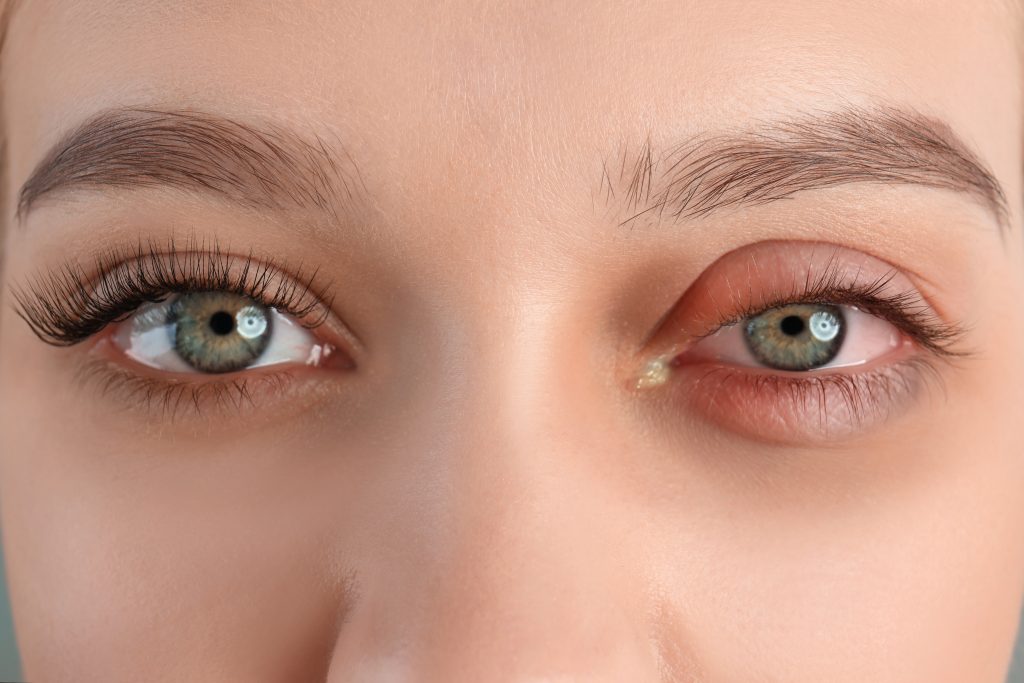5 Tips to avoid conjunctivitis during monsoon
- Keep your eyes dirt-free
- Practice good hygiene
- Use protective eyewear
The arrival of the monsoon season brings welcome reprieve from the sweltering heat, but it also heralds in an increase in the likelihood of conjunctivitis, more often known as “pink eye.” As a medical professional, we are aware of how essential it is to take care of one’s eyes, particularly during this wetter time of year. Here are some crucial pointers to help you avoid conjunctivitis and fully take advantage of the rainy season.

Here are 5 tips to avoid conjunctivitis during monsoon.
- Practise Good Hygiene: The transmission of bacteria and viruses is one of the key factors that might lead to conjunctivitis. It is important to wash your hands frequently with antibacterial soap and water to reduce the risk of transferring germs from your hands to your eyes. You should try not to contact your eyes unless absolutely necessary, and if you do, you should make sure your hands are clean. Additionally, in order to lessen the likelihood of becoming contaminated, you should avoid sharing personal items such as towels, pillowcases, and eye makeup.
- Keep Your Eyes Clean: Always wash your hands before touching your eyes Dust, pollen, and other irritants to the eyes are more abundant during the monsoon, which can make eye discomfort worse. Rinse your eyes thoroughly with lukewarm water to remove any potential irritants that may have accumulated. Your eyes may feel more comfortable after using a saline solution, which can also help calm them. Keep in mind that vigorously rubbing your eyes can make any irritation that may already be present much worse.
- Stay Hydrated: Keep Yourself Well Hydrated Keeping yourself well hydrated is essential to preserving the moisture balance in your eyes. If you want to avoid having dry eyes during the day, which might make you more prone to infections, be sure to drink enough water throughout the course of the day. Include in your diet items that will help you stay hydrated, such as cucumbers, carrots, and oranges. These foods are full of vitamins that are necessary for maintaining healthy eyes.
- Use Protective Eyewear: Wear Eye Protection Wearing protective eyewear such as sunglasses helps protect your eyes from things like raindrops, dust, and particles that may be carried by the wind. This tip may not be the most stylish, but it could save your vision. Choose sunglasses with UV protection so that you can shield both your eyes and your skin from the sun’s potentially damaging rays. Conjunctivitis and other eye discomforts can be avoided to a large extent by following this uncomplicated precaution.
- Avoid Stagnant Water: Stay away from standing water During the monsoon season, standing water can turn into a breeding ground for bacteria as well as mosquitoes. It is best to avoid sitting in locations with standing water or walking through puddles because these environments can harbour pathogens that cause sickness. In the event that water gets into your eyes by accident, you should thoroughly flush them with clean water to reduce the likelihood of getting an infection.



It is possible for you to considerably lessen the likelihood of having conjunctivitis during the monsoon season by adhering to the recommendations presented in this article. If you make maintaining adequate eye care a top priority, take precautions against potential irritants, and put an emphasis on good hygiene, you will be able to enjoy the rainy season with clear and healthy eyes. Keep in mind that even a small amount of preventive can go a long way towards protecting your precious vision.
Recent Post
Best Lasik Eye Surgery: It’s Procedure and Benefits
Understanding Best Lasik Eye Surgery What is LASIK? How Does LASIK Working? Benefits of LASIK Eye Surgery Procedure of Best Lasik…
Eye Care Routine for Maintaining Good Eye Health During Monsoon
Maintaining Good Eye Heath During Monsoon Common Eye Allergies Eye Care Tips To Prevent Your Eyes From Damage Maintaining good eye…
Dry Eye: The importance of tears in maintaining healthy eyes
Dry Eye: The importance of tears in maintaining healthy eyes Understanding Dry Eye Managing Dry Eye Syndrome Dry Eye: The importance…



